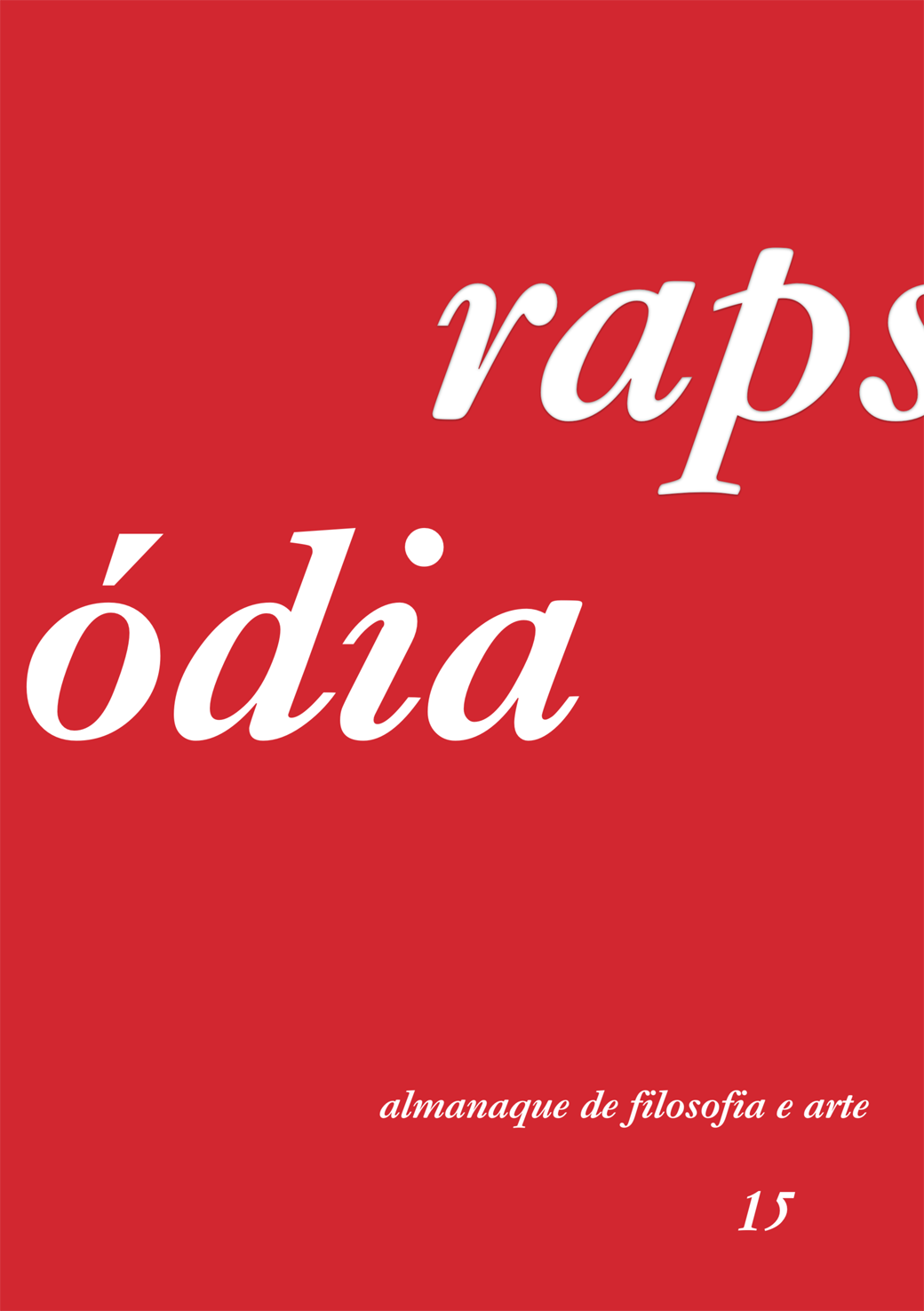Habermas e o desafio pós-moderno (ainda)
DOI:
https://doi.org/10.11606/issn.2447-9772.i15p32-51Palabras clave:
Habermas, Modernidade, Pós-modernidade, Arte, EstéticaResumen
Trata-se de discutir as dificuldades de compatibilizar alguns pressupostos da filosofia de Jürgen Habermas. Ela pretende escapar a uma crítica autodestrutiva da razão, ao mesmo tempo em que concede premissas de uma ontologização da arte ou, pelo menos, de uma função poética da linguagem com forte tom antificcional. Por outro lado, ela não pode, ao seguir esta via, simplesmente inverter a parte proscrita da imagem dialética, isto é, apontar de modo “superfundamentalista” o outro esquecido da razão. Isso permite perceber como sua filosofia segue exposta ao desafio colocado pelo pensamento pós-moderno.
Descargas
Referencias
ADORNO, Th. “Zur Metakritik der Erkenntnistheorie. Drei Studien zu Hegel: Einleitung”. In: Gesammelte Schriften. Versão digital da edição das obras completas, sob licença da editora Suhrkamp. Berlin: Directmedia, 2003 (Digitale Bibliothek Band 97).
BOHMAN, J. “World Disclosure and Radical Criticism”. In: Thesis Eleven 1994, n.37.
BÜHLER, Karl. Teoría del Lenguaje. Tradução de Julián Marías. Madrid: Revista de Occidente, 1961.
DUVENAGE, P. Habermas and Aesthetics: The Limits of Communicative Reason. Cambridge: Polity Press, 2003.
FOUCAULT, M. “Nietzsche, Genealogy, History”. In: Language, Counter-Memory, Practice – Selected Essays and Interviews. Ithaca: Cornell University Press, 1977.
GRUPILLO, A. “A urbanização da província”: Molière e a categoria do ridículo. In: Artefilosofia, Ouro Preto, n.3, jul.2007, p.193-200.
HABERMAS, “Arquitetura moderna e pós-moderna”. Tradução de Márcio Suzuki. In: ARANTES, Otília & ARANTES, Paulo. Um ponto cego no projeto moderno de Jürgen Habermas. São Paulo: Brasiliense, 1992.
HABERMAS, J. O discurso filosófico da modernidade. Tradução de Luiz Sérgio Repa e Rodnei Nascimento. São Paulo: Martins Fontes, 2000.
HABERMAS, J. Pensamento pós-metafísico. Tradução de Flávio Beno Siebeneichler. Rio de Janeiro: Tempo Brasileiro, 1990.
HABERMAS, J. Verdade e justificação. Tradução de Milton Camargo Mota. São Paulo: Loyola, 2004.
HESS-LÜTTICH, Ernst W.B. Kommunikation als ästhetisches Problem. Tübingen: Narr, 1984.
JAKOBSON, R. “Linguistik und Poetik”. In: Poetik. Frankfurt am Main: Suhrkamp, 1979.
LAFONT, Cristina. Sprache und Welterschlieβung. Zur linguistischen Wende der Hermeneutik Heideggers. Frankfurt am Main: Suhrkamp, 1994.
LYOTARD, J. “Notizen über die Bedeutung von ‘post-’”. In: Postmoderne für Kinder. Wien: Passagen, 1987.
MAJETSCHAK, Stephan. “Jürgen Habermas und Jean-François Lyotard über Moderne und Postmoderne. Anmerkungen zu einer gescheiterten Debatte aus kunsttheoretischer Sicht”. In: Europäische Romane der Postmoderne. Frankfurt am Main: Peter Lang, 2004.
MENKE-EGGERS, C. Die Souveränität der Kunst. Ästhetische Erfahrung nach Adorno und Derrida. Frankfurt am Main: Athenäum, 1988.
Descargas
Publicado
Número
Sección
Licencia

Esta obra está bajo una licencia internacional Creative Commons Atribución-NoComercial-CompartirIgual 4.0.



